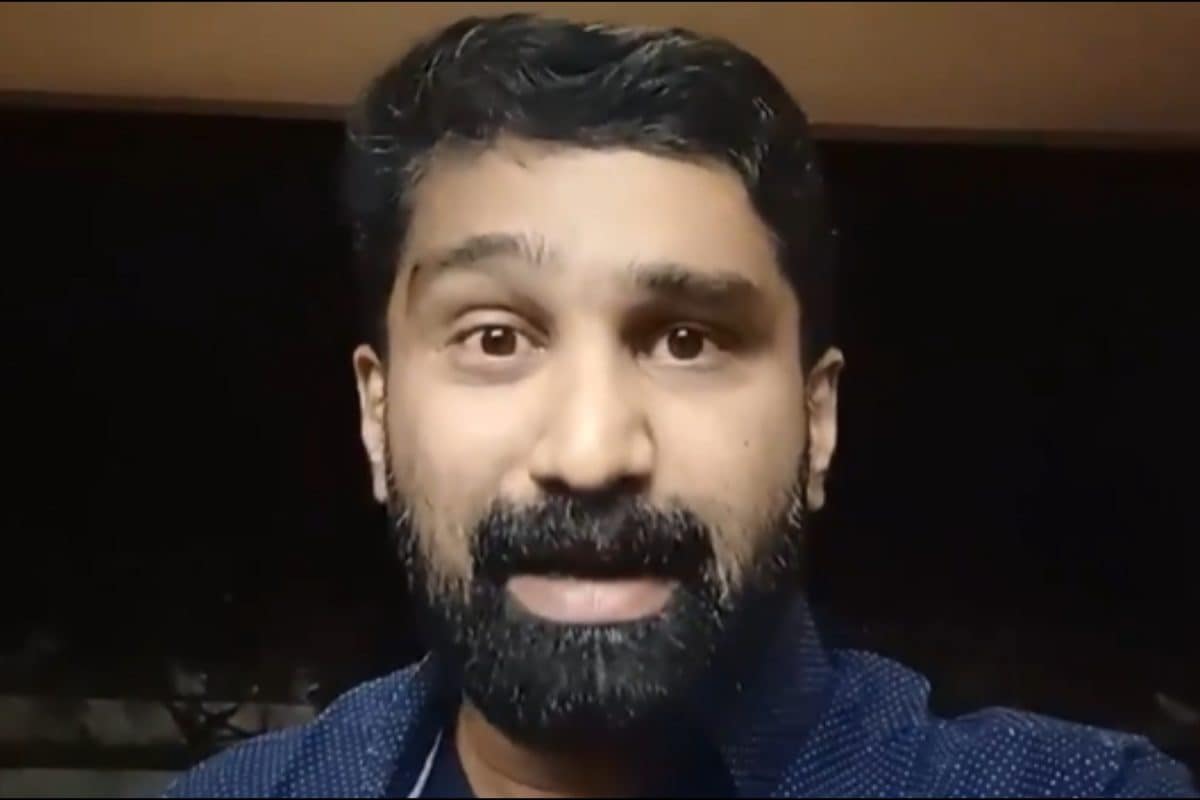'Insensitive', 'irked': Kerala Congress Chief Offers to Resign over 'Bihar, Bidis' Post
Politics Politics of IndiaPosted by AI on 2025-09-06 14:02:41 | Last Updated by AI on 2025-09-06 16:56:18
Share: Facebook | Twitter | Whatsapp | Linkedin Visits: 0

The Congress party has found itself in the center of a political firestorm, with its Kerala state unit drawing widespread criticism and accusations of igniting communal tensions for a social media post that purported to compare the state of Bihar to small Indian cigarettes, known as bidis. With the BJP accusing the party of defaming the state, the state president of Congress, K. Babu, has offered to step down from his position.
The post, which has since been deleted, compared the four percent Goods and Services Tax (GST) applied to bidis to the zero percent GST applied to pasta, ice cream, and sweets in Bihar. The post was intended to highlight the perceived inequity of the tax system.
The tweet promptly drew a strong response on social media, with many decrying the post as insensitive and an attempt to spark communal tensions, given that Bihar is home to a sizeable population of daily wage workers who often smoke bidis.
The BJP seized the moment to attack the Congress party, accusing it of trying to divide the people of Bihar along religious and communal lines ahead of the state's upcoming assembly elections.
The controversy has not only sparked a heated exchange between the two parties but also underscored the power of social media in today's political landscape, where a single post can ignite intense backlash and have serious repercussions, even resulting in an offer to resign.
As the parties involved continue to grapple with the aftermath of the scandal, it's clear that social media and the potential for swift public reaction will continue to profoundly impact the landscape of Indian politics.
Search
Categories
- Sports
- Business
- National
- Investments
- History
- Politics
- International
- Science & Technology
- Social Issues
- Disaster Management
- Current Affairs
- Events & Jobs
- మన పార్టీ
- మన నాయకత్వం
- మన విజయాలు
- డౌన్లోడ్స్
- మీడియా వనరులు
- కార్యకర్తలు
- రాజకీయం
- బిజినెస్
- సంపాదకీయం
- నవ్య
- చిత్ర జ్యోతి
- క్రీడలు
- జాతీయం
- తెలంగాణ
- తాజా వార్తలు
- Fast Check
- South
- Gallery
- Sunday Chronicle
- Hyderabad Chronicle
- Technology & Innovation
- Innovations and Initiatives
- బిజినెస్
- North East Skill Center News
- Government Schemes
- Entrepreneurship Support
- Employment Opportunities
- Skill Training Programs
- Education
- Startup Business
- Startup News
- Awards
- Community Services
- Fundraising Events
- Volunteer Services
- Health Initiatives
- సినిమా
- లైఫ్ స్టైల్
- క్రైం
- ట్రెండింగ్
- జాబ్స్
- అంతర్జాతీయo
- Market Buzz
- Banners
- Awards
- Partners
- Products
- Press Releases
- News
- Departments
- Initiatives
- Resources
- Telangana IT Parks
- Press Releases
- News
- Airport News
- Sports
- Business
- Newtons Laws of Motion
- Karbonn in Business
- Investments in Karbonn
- Company quarterly sales
- Markets
- Auto News
- Industry
- Money
- Advertisements
- Stock target
- Company Updates
- Stock Market
- Company Sales
- Staffing and HR
- Constituency Assembly
- General News
- Srikalahasti Temple
- Bojjala Sudhir Reddy
- Products
- Industries
- Services & Trainings
- Tools & Resources
- Technology Integration
- Drug Seizures & Arrests
- Telangana Narcotics
- Law & Enforcement
- Rehabilitation
- Nationwide Drug Policing
- Nigeria Seizures
- Global Operations
- Drug Awareness
- Drug Enforcement Tech
- NCB Drug Seizures
- Judicial Crackdown
- India's Surveillance Tools
- Cross-Border Links
- Women Safety
- Cyber Crimes
- Drug Abuse
- Traffic & Road Safety
- Community Connect
- Public Safety Alerts
- Citizen Assistance
- Nellore City News
- Politics & Administration
- Events & Festivals
- Agriculture & Rural
- Business & Economy
- Health & Wellness
Recent News
- The story of a man duped of 29 lakh showcases the dangerous realities of online trading fraud. The victim, a 40-year-old man from Yousufguda, initially encountered the fraudsters on Facebook, who then added him to a fake WhatsApp group named F55 Fortune Skye. The group appeared genuine, with over 200 members, and the victim proceeded to deposit huge amounts of money into bank accounts presented as being linked to SEBI-registered entities. The fraudsters forced the man to pay an unreasonable 18% fee, and then a 20% tax, all while displaying a balance of 42,86,947 on a fake trading application named RCLPMA. However, the victim was never allowed to withdraw any funds, and the money instead was diverted to charity. The investigation revealed that the WhatsApp group was largely controlled by the fraudsters, who posed as investors to mislead genuine participants. This case highlights the importance of understanding the ramifications of online trading and the reality of online investment scams.
- Delhi Doctor Serves Notice, Lights Camera Film!
- Breaking Barriers: Lt Parul Dhadwal Leads the Way
- Telangana launches 'PROTECT' to fight rising cybercrime
- Tuberculosis Making a Comeback in Maine, Prompting Alerts Elsewhere in US
- NYT Bombshell: Navy SEALs Killed Unarmed North Koreans as Trump Eyed Kim Reset
- Sure, here is a 250-word unique news article on the given title and description:
- GST Overhaul Unanimously Approved by Council, Relief for Common Man Promised